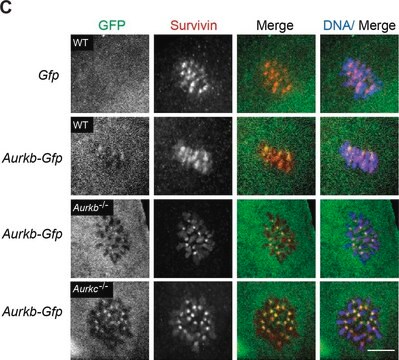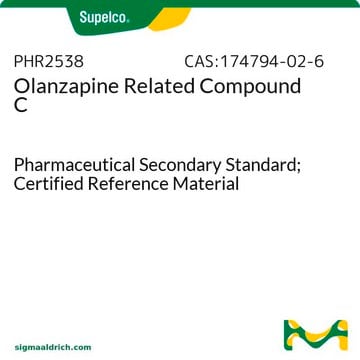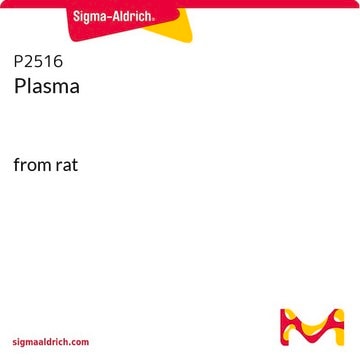MABC1111
Anti-Angiogenin Antibody, clone C527
clone C527, from mouse
Synonyme(s) :
Angiogenin-1, Ribonuclease 5, RNase 5
About This Item
Produits recommandés
Source biologique
mouse
Niveau de qualité
Forme d'anticorps
purified antibody
Type de produit anticorps
primary antibodies
Clone
C527, monoclonal
Espèces réactives
mouse
Technique(s)
ELISA: suitable
immunofluorescence: suitable
western blot: suitable
Isotype
IgG2bκ
Numéro d'accès NCBI
Numéro d'accès UniProt
Conditions d'expédition
ambient
Informations sur le gène
mouse ... Ang(11727)
Description générale
Spécificité
Immunogène
Application
ELISA Analysis: A representative lot detected Angiogenin in ELISA applications (Goncalves, K.A., et. al. (2016). Cell. 166(4):894-906).
Apoptosis & Cancer
Qualité
Western Blotting Analysis: 4 µg/mL of this antibody detected recombinant mouse angiogenin.
Description de la cible
Forme physique
Stockage et stabilité
Autres remarques
Clause de non-responsabilité
Vous ne trouvez pas le bon produit ?
Essayez notre Outil de sélection de produits.
Code de la classe de stockage
12 - Non Combustible Liquids
Classe de danger pour l'eau (WGK)
WGK 1
Certificats d'analyse (COA)
Recherchez un Certificats d'analyse (COA) en saisissant le numéro de lot du produit. Les numéros de lot figurent sur l'étiquette du produit après les mots "Lot" ou "Batch".
Déjà en possession de ce produit ?
Retrouvez la documentation relative aux produits que vous avez récemment achetés dans la Bibliothèque de documents.
Notre équipe de scientifiques dispose d'une expérience dans tous les secteurs de la recherche, notamment en sciences de la vie, science des matériaux, synthèse chimique, chromatographie, analyse et dans de nombreux autres domaines..
Contacter notre Service technique







